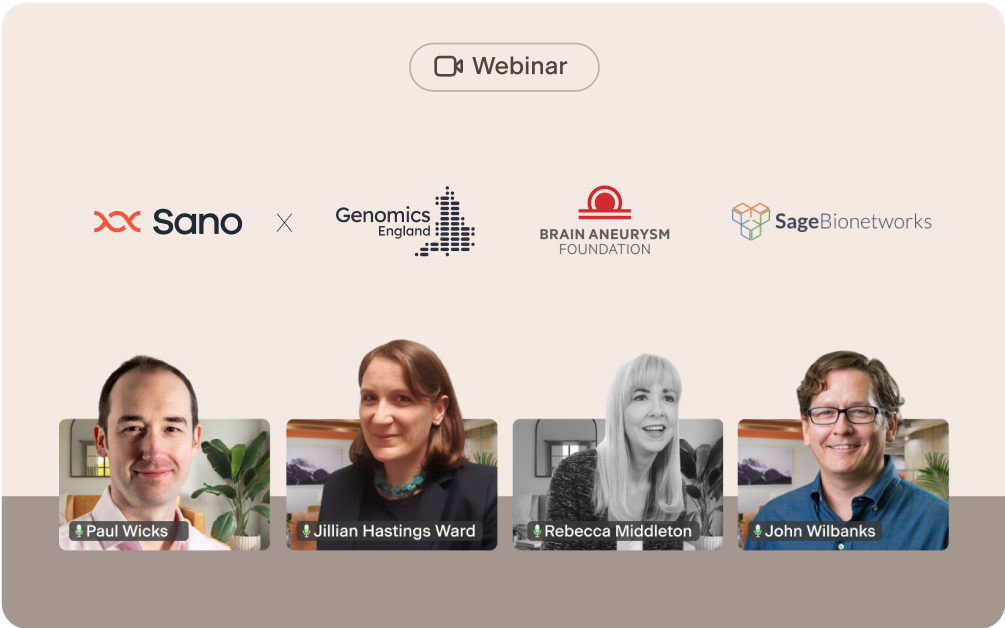Webinar recap: Patient engagement in precision medicine research

This webinar was hosted by Sano Genetics' scientific advisor, Paul Wicks, and featured representatives from Genomics England as well as Sage Bionetworks. The discussion centered around experiences and insights on patient engagement in precision medicine research, including how patients can be more involved in this type of research, as well as how design systems can impact engagement.
The link to the full webinar is here; a brief summary is below for easy reference.
About the speakers
Jillian Hastings Ward
Jillian Hastings Ward is a rare disease patient advocate and the Chair of the Participant Panel at Genomics England. She is involved in building patient-led research networks and promoting patient involvement in precision medicine research.

Rebecca Middleton
Rebecca Middleton is the Founder & CEO of Hereditary Brain Aneurysm Support (CIC), as well as a rare disease patient advocate and Vice-Chair of the Participant Panel at Genomics England. She has worked to build lasting relationships between patients, doctors, and researchers in order to improve representation and make data sharing more responsible.

John Wilbanks
John Wilbanks worked at Sage Bionetworks, a non-profit organisation that aims to make data more responsibly shareable and representative, as their Chief Commons Officer. He has worked extensively in mobile research and virtual clinical studies, advocating for the importance of design systems in making clinical study applications usable for humans.

Paul Wicks
Paul Wicks is a consultant to clinical research and digital therapeutics companies, including Sano Genetics, Ada Health, and Woebot Health. Paul spent 10+ years at PatientsLikeMe, starting in R&D and finishing his time as VP of Innovation.
Highlights from the webinar
How can we drive patient engagement in precision medicine research?
Jillian and Rebecca discussed the work they have done with the 100,000 Genomes Project and other initiatives related to rare conditions. They highlighted the importance of patient engagement and the need for open and honest dialogue between patients and researchers throughout the research process.
John then touched on the importance of design in mobile and virtual clinical trials. He emphasised the need for a design system that can make applications more usable for patients and healthcare professionals. He also discussed the importance of user research in developing effective design systems.
How does the design system impact patient engagement in clinical research?
In addition to the importance of a design system that creates apps that are easy-to-use for patients and HCPs, it’s also important to keep in mind the non-profit organisations and companies that may not have the resources of larger organisations. User research is key to creating effective design systems that engage patients as well as additional key audiences.
Summary
This webinar provided insights on the importance of patient engagement in precision medicine research. Key to this is open and honest dialogue between patients and researchers. And, the speakers emphasised the need for design systems that take into account the user experience of all stakeholders, including patients, healthcare professionals, nonprofits, and other organisations.

